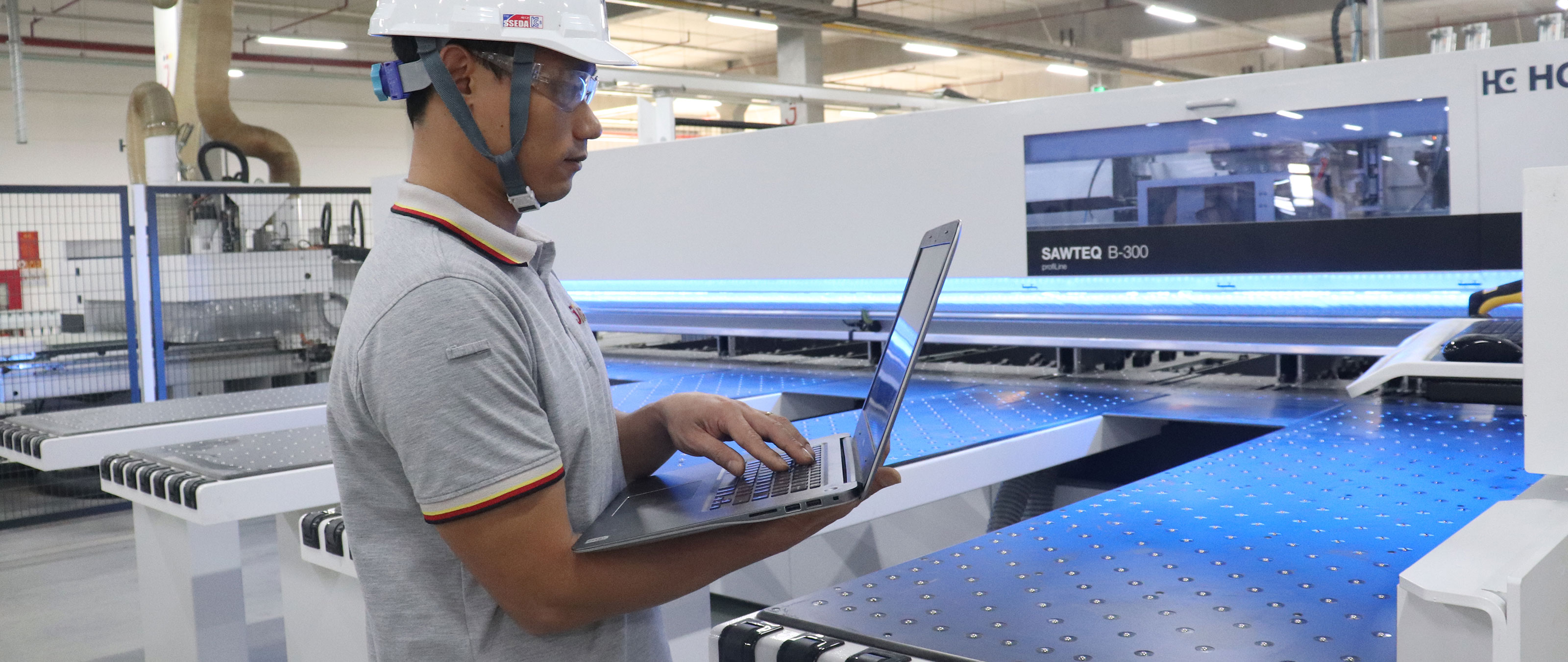
The rise of Industry 4.0 or the fourth industrial revolution has changed the face of the field of manufacturing with the use of autonomous systems driven by data and machine learning — Internet of Things (IoT), cloud computing, analytics, and artificial intelligence (AI), among others. It creates greater value with data gleaned from production and operation. It brings to light insight from areas such as supply chain, customer service and other enterprise systems, which would have in the past remained concealed. These smart factories feature higher automation, predictive maintenance, self-optimisation in terms of processes as well as greater efficiency and responsiveness to customers. Flexibility in production is also a highly prized effect of Industry 4.0. These are especially true for small, medium and large enterprises in South East Asia.
Common Manufacturing Trends In The Industry
Many of these manufacturing plants cater to interior designers, fit-out contractors and end users, and they focus on the design and fabrication of wood products: flooring, windows, doors, and other types of furniture. While these factories have proliferated, some common issues exist in the industry. Many processes involved in manufacturing are still labour-heavy with little to no machine assistance, resulting in production bottlenecks, defective products and the lack of skilled workers.
HOMAG, a global provider of integrated woodworking solutions, has been providing machines and software that have helped multiple Asian companies rely less on manpower and transition towards automated processes. This is also useful for manufacturers as many prefer to access data logged by their machinery; understanding production metrics helps them set and achieve KPIs, ultimately increasing efficiency.
Another emerging industry trend is a shift away from mass production, necessitating manufacturers to move down to batch-size-one production. Consumers prize customisation — after all, who would not want something uniquely made for them? Furniture is no different. Order volumes have shrunk from 100-500 pieces in the past 10 years, to 5-20 pieces.
With batch-size-one production, manufacturers have flexibility. Automated machines make for a less cluttered factory floor and encourage skilled workers who might otherwise leave for other manufacturing industries.
Finally, as Asian companies look into phase-by-phase growth, HOMAG presents itself as an industry partner. Jager, a Vietnamese furniture manufacturer, is one such company that has teamed up with HOMAG, trusting the woodworking machinery manufacturer to guide them through their business expansion and journey into advanced woodworking automation.
Proudly Vietnamese
Jager uses technology whereby customers can determine how their space is designed and furnished without spending excessive time in communication between furniture maker and client. With this, the company aims to lead the domestic furniture market and export to other countries. Their clientele includes real estate corporations, designers as well as individual customers.
While maintaining their production, Jager strives to incorporate “Vietnamese values and pride” in each and every piece of the furniture they make. They place a premium on beauty and perfection, especially as the company promises their customers a “high-class living space” and “high living quality”.
Modernising Manufacturing
Apart from their company’s goals and vision, Jager commits and invests in woodworking automation. Le Quon Khanh, CEO of Jager, recognises the need for technology in this business. Jager’s first factory was equipped with a panel saw, edgebander and computer numerical control (CNC) but when he was planning for his new factory, he knew he had to invest into a new, more automated production to cater to the lower batch environment. This commitment paid off.
“In 2009, I started research and learning in the industry from my experiences doing business with clients and handling previous projects,” Khanh shared.
Aiding them in their technological journey was HOMAG, which the CEO of Jager described as a“key partner” and “one of the best decisions” that the company had made to develop their products successfully. He is proud to call Jager a “modern, new-generation manufacturer”.
When Khanh set out to build his business, he made his decisions based on two key objectives: to create a company not dependent on manpower, and to nurture one that promotes effectiveness and sustainability. HOMAG’s machines and solutions have helped him with respect to these objectives.
Among HOMAG’s products that have improved their manufacturing processes are the STORETEQ S-200, a horizontal storage system; SAWTEQ B-300, an integrated panel saw; CENTATEQ N-300, an integrated CNC nesting centre and another SAWTEQ B-300 as an external panel saw. Other machines the Vietnamese manufacturer utilised are HOMAG’s edgebanding machine EDGETEQ S-380 with return conveyor belt LOOPTEQ O300; and the routing and drilling processing centre, CENTATEQ P-110 and DRILLTEQ V-200.
Jager’s ongoing transformation reflects not just the impacts of Industry 4.0, but the potential that technology and automation have on manufacturing, production, and distribution in various industries.
Growing With Customers
HOMAG strives to design its machines and solutions with Asian markets in mind. Jager’s success and continual progress are not only a reflection of how HOMAG commits to helping its customers expand, but also proof that manufacturers can grow and flourish when they make the right investments in automation and advanced woodworking solutions.
Video
“Aiding them in their technological journey was HOMAG, which the CEO of Jager described as a key partner and one of the best decisions that the company had made to develop their products successfully.”Le Quon Khanh, CEO of Jager




